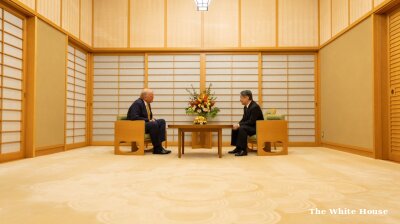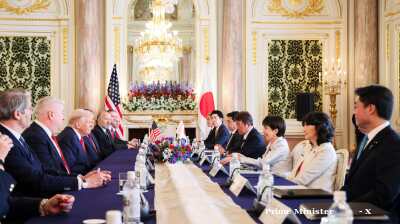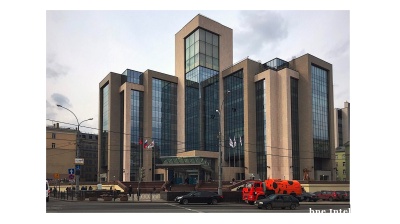Belarus' defence minister tells military elite: "It is necessary to fight. And if necessary with weapons" as Lukashenko's counteroffensive gathers momentum

Belarus’ Defence Minister Viktor Khrenin told the country’s military elite that there may be a military conflict and they may be called on to use their weapons, in an hour long briefing, the audio of which was leaked to the local press.
"Yes, we may have a civil war, the price of human life is decreasing every day. This is terrible. There's a chance we'll have a military conflict, this is a reality... Criminal order, not criminal – we are soldiers, we execute orders!" Khrenin said
“It is necessary to fight. And if necessary with weapons. For the country, for ourselves, for our families, for those teachers who are scared and afraid,” Khrenin told the military elite according to a recording shared with local paper Nasha Niva that published extracts on August 20.
In the last few days Lukashenko has escalated his talk of an external military threat and has been actively moving troops around the country, according to reports. Analysts warn that Lukashenko’s strategy is playing with fire and could end up in open conflict with either Russia or NATO forces.
“The war has come to our home. The whole country is at the epicentre. Those who invented the colour revolutions drew conclusions from the First and Second World War that such massive armies are not very successful in achieving their goals,” Khrenin said. “Those political strategists who write [opposition leader Svetlana] Tikhanovskaya's texts raise the question: the army, are you with the people? Will you shoot against the people? We are being summoned, including by Tikhanovskaya, who says "Don't follow criminal orders." This woman calls us to commit treason, breaking the law - not to follow orders. he is a criminal, or not a criminal ... - we are military people. The state system has not collapsed. It works. The president has been elected. Until the army goes over to the side of the protesters, the state cannot be destroyed. All hope is on you and me.”
There is now a visible programme to discredit the opposition that is also being supported by Russian state TV and its main thrust is that Belarus is under threat from external sources. Senior officials at the Belarusian foreign ministry got a similar pep take from the minister, according to reports.
Lukashenko has randomly thrown out this line on many occasions, but now it is a message that is being systematically distributed by the various state bodies.
During his address to Belarus’ officers, Defence Minister Khrenin repeated many of Lukashenko’s lines and highlighted the external threat in the leaked audio.
He repeated a list of the opposition’s programme that has also been expounded by Lukashenko: exit from the Commonwealth of Independent States (CIS), the Eurasia Economic Union (EAEU), the union state by the end of the year. Prohibition of Russian TV broadcasting, replacement of broadcasting by Lithuania, Latvia, Ukraine. Exit from the Collective Security Treaty Organisation (CSTO). Autocephaly of the Belarusian Orthodox Church, translation of the education system at all levels into the Belarusian language.
Khrenin went on to remind the officers of their duty and that they might find themselves in a situation where they are pointing a gun at a protester.
“[Those who doubt], it is better to leave now, on the command "stop or I'll shoot." And those that leave once receiving these commands, this will be a betrayal,” Khrenin said.
Khrenin spelled out a scenario where a soldier confronted a protester and warned them to stop. If the order to stop is not obeyed the soldier is “obliged” shout “stop or I will fire” and then to fire into the air. “So that we don't fire a shot to kill. But if [the offender] continues, then we will do it ...”
“I really don't want to do this, but this is the duty of the sentry, this is the duty of you and me - the army. Maybe some want this, so that later we, me, will be accused of genocide against our own people, because when weapons are used, peaceful people die,” Khrenin said.
The army is rapidly coming into play and Lukashenko maybe looking for a provocation as an excuse for imposing martial law as a last resort.
“Lukashenka is drawing attention to the north-west corner of Belarus, singling out the city of Grodno near the border with Poland and Lithuania as a supposed target for Western efforts at destabilisation. Grodno is also the destination for an airborne brigade moving from the east to the west of the country and the focus of military exercises currently under way on the country’s western borders,” said Keir Giles, a senior consulting fellow at Chatham House in a note.
“All this feeds Lukashenka’s narrative that Belarus is in danger from NATO and the West, who are supposedly both stirring up the protests,” said Giles. “The danger is that having invented a tense situation in Grodno, Lukashenka may now need to be proved right. There may be staged incidents or ‘provocations’ against Belarus military forces.”
Lukashenko’s counteroffensive gathering momentum
Tensions are rising in Minsk between the anti-government protesters and Belarus' self-appointed president as the incumbent’s counteroffensive gathers momentum.
Backed into a corner, the Belarusian strongman has been pushing the “enemy at the gate” line that Russian President Vladimir Putin so effectively used during the crisis that followed the annexation of the Crimea in 2014. Then Putin claimed that NATO and the US were an existential threat to Russia requiring a decisive response. His personal popularity soared into the 80s as a result.
In the last few days Lukashenko has begun to play the same card. On August 19 he put the army on the Polish border on full alert and warned of aggression by external forces in televised remarks.
In another sign of Lukashenko hunkering down for the long haul, the entire Belarusian government resigned on August 19 as it is required to do after a new president is elected.
The appropriate resolution No. 480 of the Council of Ministers of 15 August in line with Article 106 of the Constitution was officially published on the National Legal Internet Portal on 17 August, the state-owned newswire BelTA reported. The resolution comes into force on the day it is published.
And as bne IntelliNews reported, Russia is also playing a more aggressive and visible role in the Belarusian protests. Russian state TV has begun to criticise the demonstrations, and the head of RT, Margarita Simonyan, slated former English teacher and nominal victor in Belarus’ presidential election Svetlana Tikhanovskaya, saying she “has an IQ of 82, not much more than an orang-utan.”
More generally, Russia has launched what looks like an information war to sow the seeds of doubt and confusion amongst the protestors in an effort to take the wind out its sails and break up the unity that Tikhanovskaya brought to the movement with her simply message: “Lukashenko must go and free elections must be held.”
Latushko calls for dialogue
That’s going to take a while. Some of the euphoria of the last three days when the population ruled the streets has faded as the OMON have reappeared and the first serious pro-government rallies get under way, Tadeusz Giczan, a Belarusian PhD candidate at University College London School of Slavonic & East European Studies and a leading voice on Twitter, told bne IntelliNews in a podcast this week.
Tikhanovskaya’s team is still on square one of organising a political and diplomatic strategy to force Lukashenko from office.
At the first meeting of the Coordinating Council set up by Tikhanovskaya, a new potential leader of the opposition emerged, the former diplomat and Minister of Culture Pavel Latushko, who spelled out some more details of the Coordinating Council's goals in an interview on August 19.
Latushko sprang to prominence amongst the protesters after he was dismissed from his last post as director of the National Academic Theatre, named after Yanka Kupala, because of his vocal support of the protests.
And he is already paying the price for turning his back on the administration. Overnight Latushko’s house was attacked and vandalised. His wife, children and his mother have already fled the country and Latushko has moved to an undisclosed location for reasons of personal security.
In an appeal to a Russian audience Latushko went on Russia’s liberal radio station Echo Moscow in the morning of August 20, to underline that the Coordinating Council has not made a single anti-Russian statement. He said the Coordinating Council desired to have warm and beneficial relations with all its partner countries, but especially Russia.
“There is not a single anti-Russian statement in the council. We want to be a powerful bridge between east and west." Latushko said in the interview.
Latushko says there is a need for dialogue and all the parties involved have said the same thing. Tikhanovskaya also called for a dialogue between the Coordinating Council and the Kremlin on the morning of August 20.
“By the way, the issue of dialogue was also mentioned in the resolution of the European Union. And in the position expressed by the Ministry of Foreign Affairs of the Russian Federation on the need for a dialogue between the parties to resolve the current situation,” Latushko said in a separate interview with the BBC Russian service on August 19.
Latushko made clear the goal of the Coordinating Council is to start talks to bring about fresh elections, but it is not intending to get involved in trying to force Lukashenko from office and distanced the council from the largely leaderless protests.
“We have formed a number of working groups that will work in the areas of freedom of speech, media activities, human rights, investigation and prevention of acts of violence against the population in the future… We have no goal of co-ordinating any street protests. We are not authorised, and for such actions, of course, there will be a very weighty responsibility,” Latushko said.
Having said that, he went to say that the population had every right to demonstrate.
“Every citizen, in accordance with the Constitution of the Republic of Belarus, has the right to participate in peaceful rallies and demonstrations and thus express his opinion, and we saw that the citizens of our country have been very actively exercising this right lately,” said Latushko.
Lithuania has emerged as the EU’s point on the Belarusian political crisis. It both condemned the falsification of the elections on August 9 in a joint statement with Poland and is now hosting Tikhanovskaya, who was forced to flee the country a few days after the polls closed. On August 19 Lithuania also announced EU travel bans for Lukashenko and 32 other members of his government.
In a show of solidarity with the protesters, Lithuania’s Prime Minister Saulius Skvernelis met with Tikhanovskaya and called her the “national leader of Belarus.” Skvernelis said on his Facebook page that together with partners in Poland, Latvia and Estonia, they are doing everything to ensure free and fair elections in Belarus.
Strike crackdown
While the diplomacy gets underway Lukashenko has been busy with a counteroffensive he attempts to retake control of the situation.
The most vocal anti-government workers at leading factories have been sacked and the authorities have begun some 60 criminal cases against protesters who are charged with organising / co-ordinating unauthorised protests, according to human rights NGO Viasna. The website Spring 69 is compiling a list of those who have been detained, detailing the charges and where they were arrested. If convicted, the workers could face long prison sentences.
“The government is trying to crack down against the current civil and labour unrest,” tweeted Alex Kokcharv, a political analyst with IHS Markit.
Afraid of losing their jobs and being subsequently blacklisted by the authorities, many workers have switched tactics and are going on “Italian strike” where they go to work, but just don't work very hard.
“You can't fire them, but on the other hand, there won't be much benefit,” Latushko explained. “I do not think that the state is able to withstand such a state for a long time. We do not call for any illegal actions, that is, this is the right of people to express their opinion, based on the constitution of our country.” The state has also regained control of the main TV stations. According to unconfirmed reports, Russia flew in 200 specialists to run the broadcasters, although in a previous strike by metro drivers the state just brought in train drivers to do their job. However, some employees of state TV found themselves barred from their own offices when they tried to enter the building on August 20.
Newspapers are feeling the state’s pushback too. The local press have largely gone over to the people and are running highly government-critical front pages in the last few days. However, when Komsomolskaya Pravda tried to print its latest issue, which led with a report of the authorities' support for protesters in Gomel, it was told that it was impossible, as the presses were “broken” for the second time this week.
The editor-in-chief of another state-run paper, Zviazda, was also fired for running pro-protest stories. Zviazda employees also joined the nation-wide strike. The new editor-in-chief is the former minister of information.
So far the strike seems to be holding. On August 20, the strike committee at Belarus' giant potash producer Belaruskali said it had no plans to call off its strike, despite the fact that management said all its seven mines as well as three processing plants are operating as normal. Belaruskali is one of the largest suppliers of potash fertilizers to the world market. It sells its products through the Belarusian Potash Company.
"The strike committee extended the strike and adjusted its demands, including the demand to abolish the contract system," the chairman of the Belarusian Independent Trade Union, Maxim Poznyakov, told TASS, but he did admit that some of the staff had resumed work.
"There are those who went down into the mine, but are not working. In general, the situation is controversial, people will continue to go out to the square," Poznyakov said.
News

US-China trade talks deliver breakthrough as markets rally ahead of Trump-Xi meeting at APEC
How and if China will react to a US-Japan rare earths deal remains to be seen but Beijing has said it will suspend its restrictions on rare earth metal exports in what is a move likely to ease pressure on the US tech and defence sectors.

US, Japan sign rare earths deal to ‘secure’ supply chains
The two leaders signed an agreement establishing a framework for cooperation in the mining and processing of rare earths and other essential minerals; a move that underscores growing anxieties over China’s dominance in the sector.
.jpeg)
Mexico secures trade extension with US, averting November 1 tariff escalation
US President Donald Trump and Mexican President Claudia Sheinbaum have agreed to extend a critical trade deadline by several weeks, granting negotiators additional time to resolve 54 outstanding commercial barriers between the nations.

West Africa’s BRVM market cap hits record $21.2bn driven by telecoms, banks
West Africa’s regional bourse hit a record market capitalisation, up 29% YTD, supported by strong performance among telecom and banking stocks, and rising participation from domestic institutional investors.



